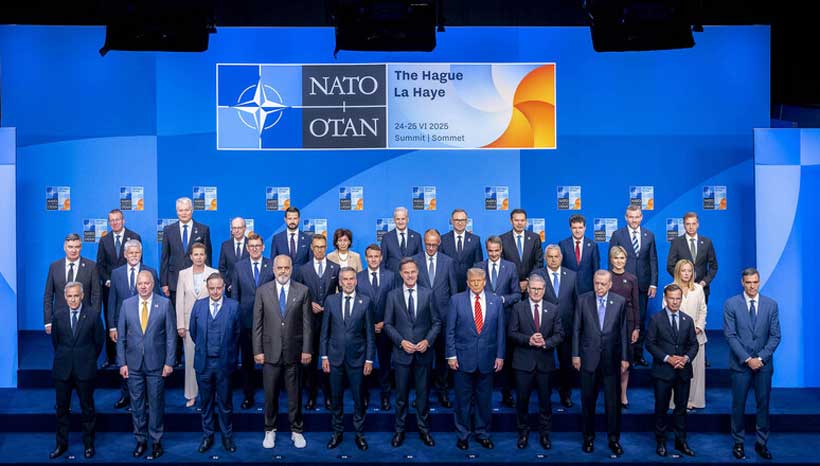When Donald Trump returns as President of the United States in 2025, the existing security structure in Europe is again experiencing uncertainty. The threat that the United States could reduce its military commitments in NATO is no longer just a discourse and now looks like it’s already underway. Referring to the IISS (2025), if the United States withdraws its strength, then European countries must increase their budgets to close the defense gap, especially for logistics. Dependence on Washington for more than seven decades has now turned into a structural weakness that threatens the legitimacy of the international security system based on global law and justice.
The dominance of the United States over the defense structure of Europe is not only a matter of military power, but a legitimacy of international justice. Since the cold war, NATO has been built on the principle of collective defense which seems to embody the principle of international justice, namely that an attack on one country is considered an attack on all. But in practice, the US is the party that defines the threat, controls the logistics, and determines when intervention is morally and legally justified. Thus, it can be seen that the European defense system still depends on the decisions of one country.
Neorealism explains this straightforwardly, because in an anarchist international system, the state acts to maintain its survival, and the distribution of power determines the behavior of the state. In the context of neorealism, the absence of the US can trigger a balancing dynamic among European countries. France and Germany are likely to strengthen domestic military power (internal balancing), while an increase in the number of bilateral defense agreements among Eastern European countries will form a new external balancing. However, from the perspective of global justice, this phenomenon actually deepens power inequality. Large countries will become more dominant in defining threats and determining policies, while small countries will play a role as strategic complements.
Currently, EU defense spending is starting to show an important turning point, namely that in 2024, the military spending of the 27 EU member states reached €343 billion, up about 19% compared to the previous year, and is expected to increase again to €381 billion in 2025 which for the first time exceeded the threshold of 2% of GDP, reaching around 2.1%. Meanwhile, investment in research & development (R&D) also grew by about 20%, albeit only by around €13 billion. However, in terms of hard military capabilities, Europe still loses to Russia in several strategic aspects such as Russia’s military expenditure which exceeds the combined military budget of the European Union plus its defense structure is more centralized and coordinated. This is in contrast to the European Union with 27 different logistics and weapons systems, without a single unified military command. This lowers the efficiency and reaction speed.
So. In Waltz’s neorealist logic, the US is an external balancer that maintains a balance between Europe and Russia. If the US withdraws, the balance of power in the European region will tilt towards Russia, especially since Russia still has nuclear superiority and strategic depth. And Eastern European countries such as Poland and the Balkans will lose effective collective security guarantees, triggering a new arms race (security dilemma). This threatens stability in security, so if the US is to reduce its influence then NATO must clarify their legal basis for who makes collective decisions, how joint defense measures are approved, how burdens and responsibilities are redistributed fairly. Then small countries must be given space and resources so that they do not always become a “pillar” of risk without a commensurate influence. Some major countries have already started buying weapons from Europe itself, this could be the basis for more legal cooperation in defense procurement and alliance transparency.
The absence of the United States from the European defense structure is not just a change in security strategy, but a fundamental shift in the global balance of power. In the perspective of Kenneth Waltz’s neorealism, the anarchist international system requires European countries to self-help through the improvement of military capabilities and the establishment of new balancing mechanisms. Although the EU’s defense spending has exceeded €381 billion and exceeded the 2% threshold of GDP, internal fragmentation, the limitations of the defense industry, and weak strategic coordination still make Europe dependent on external forces to guarantee stability. If Europe fails to fill the vacuum of US hegemony, it has the potential to upset the balance of power and open up space for Russian domination.
